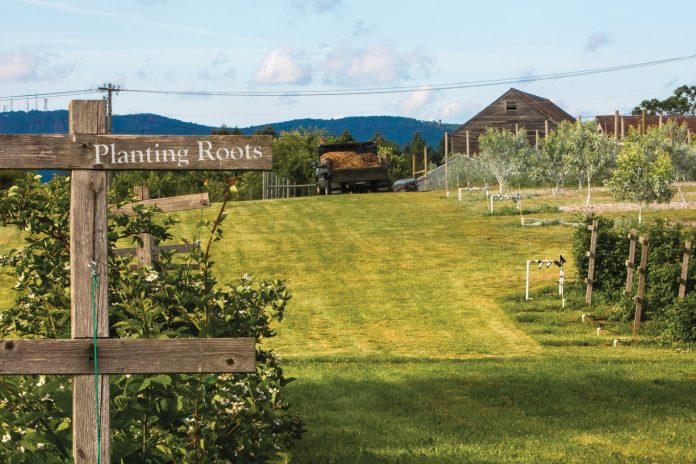Emblazoned in large block letters across the side of Old Bishop Farm’s country store is a single word: “BELIEVE.” Indeed, for John Torello, ’91, M.S. ’97, and his wife Carolyn, it took a leap of faith to bring the neglected 200-plus-year-old farm on Route 70 in Cheshire, Conn., back to life. Not to mention vision, a little trial and error, and a lot of sweat.
But as Torello walks the 15-acre property on a bright, breezy morning last May — the fruits of his labor all around him — it’s clear this is where he’s supposed to be. He proudly points out the flowering apple trees he and Carolyn planted themselves (300 that first year) and the pond that was hidden behind mounds of tangled brush. He plans to build a footbridge across it soon, maybe get some ducks. “It’s a 10-year project,” says Torello. He mentions adding a barn, unfazed by the work to come. “I love it here,” he says.
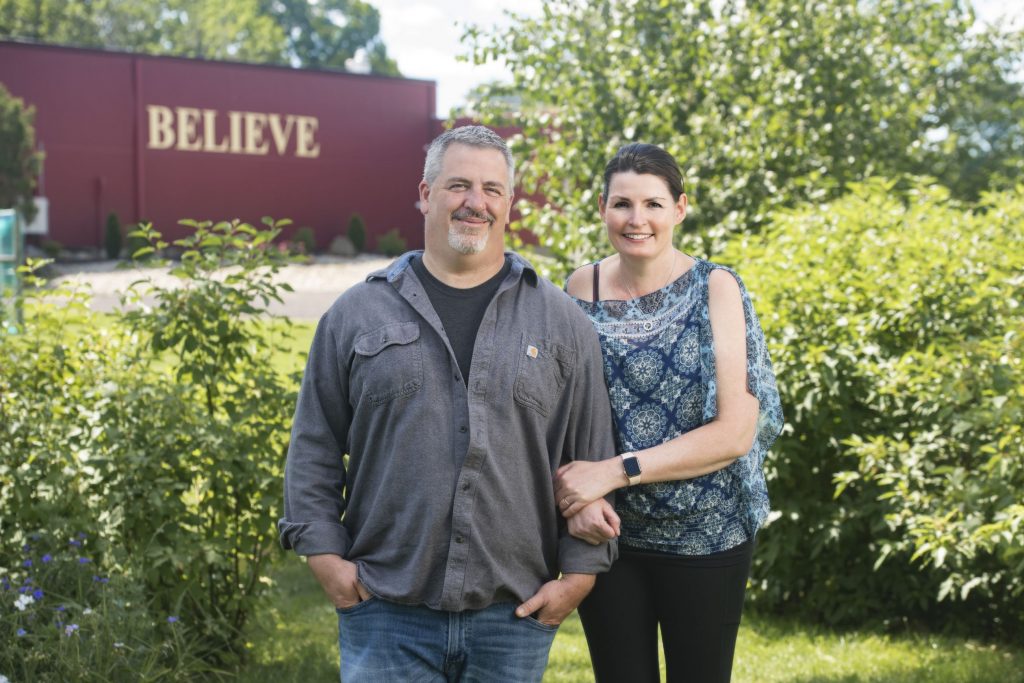
Torello jokes that it took him 30 years to figure out what he wanted to do with his life. He grew up in New Haven’s Westville neighborhood, less than a mile from Southern. So, his decision to transfer there from the University of Connecticut’s Waterbury branch midway through his first year was like a homecoming. “I still have people that I met at Southern who I talk to regularly — some daily,” he says.
After graduating with a liberal studies degree and minors in finance and marketing, he landed his first job with an insurance company, but found the work unsatisfying. A college friend who worked at a local psychiatric hospital suggested he come work with him. “You’d be great at this,” the friend told him, planting the seed for his first career switch.
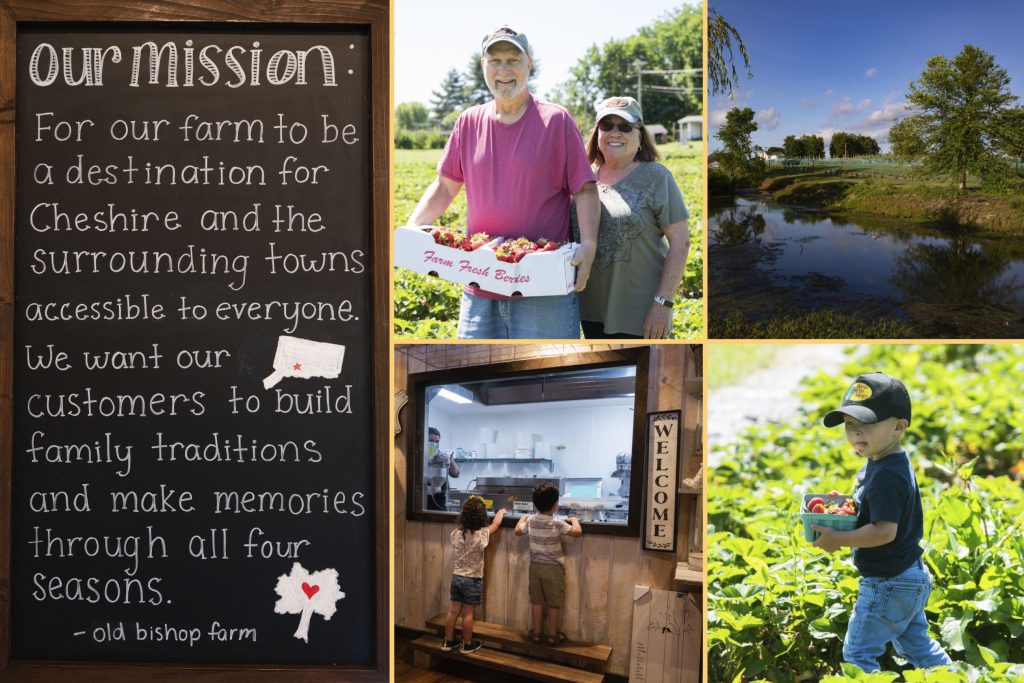
Torello took a job there as a psychiatric assistant and returned to Southern to earn a master’s degree in school psychology. That eventually led to a position counseling juveniles for Connecticut’s criminal justice division, where Torello has been for the last 20 years, now in an administrative role. “I like that job, but I knew that I still wanted to do something else,” he says.
In 2015, what started as a simple real estate investment led to his latest career leap to farm owner/operator. Torello comes from agricultural stock — his grandfather and great-grandfather owned an apple farm and cider mill in New Haven at the turn of the 20th century — but he hadn’t planned to carry on the family legacy. Until recently, the only products of Torello’s green thumb were the peppers, tomatoes, and eggplants he grew in his backyard garden. His connection to the iconic Cheshire farm was solely as a customer. “We’d come here often because we live so close,” he says. “My kids loved coming here.”
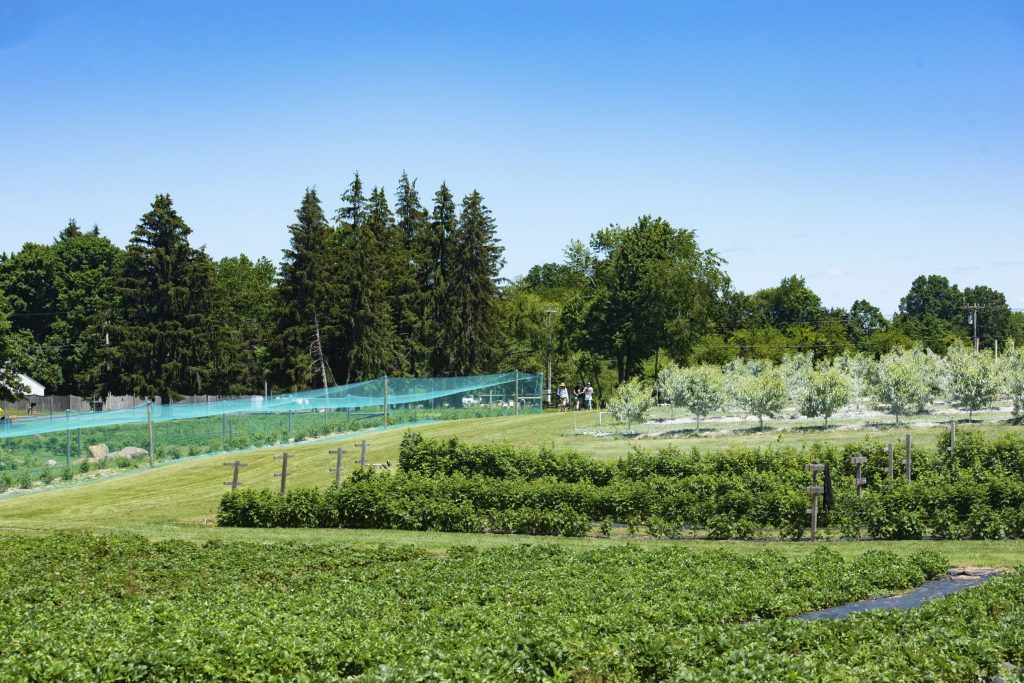
But when the farm changed hands several years ago, the new owners struggled to keep up the property. They stopped growing fruit and started selling apples from other farms, and some longtime visitors stopped coming, says Torello.
Around the same time, Torello had begun looking for an investment property. He’d made money flipping houses after college and was itching to get back into real estate. So, he approached the farm owners with a deal to buy the land and rent it back to them. “We’ll get the rental income we want, and you’ll get to keep your business,” he proposed. “It was awesome for a year — and then they broke their lease and moved,” he says.
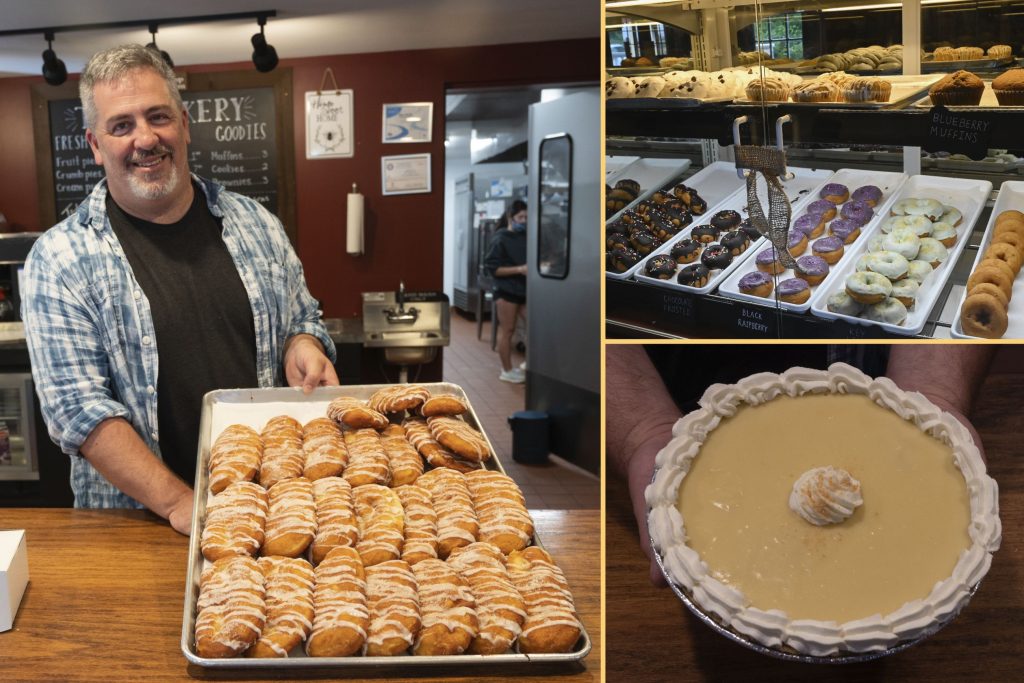
It was an unplanned turning point for the Torello family, who shut down the farm and embarked on a massive two-year renovation. They bulldozed hundreds of old and dead apple trees and replaced them with new ones, renovated the greenhouse and gardens, and completely revamped the store interior (sections date from the 1780s) before reopening in the fall of 2018.
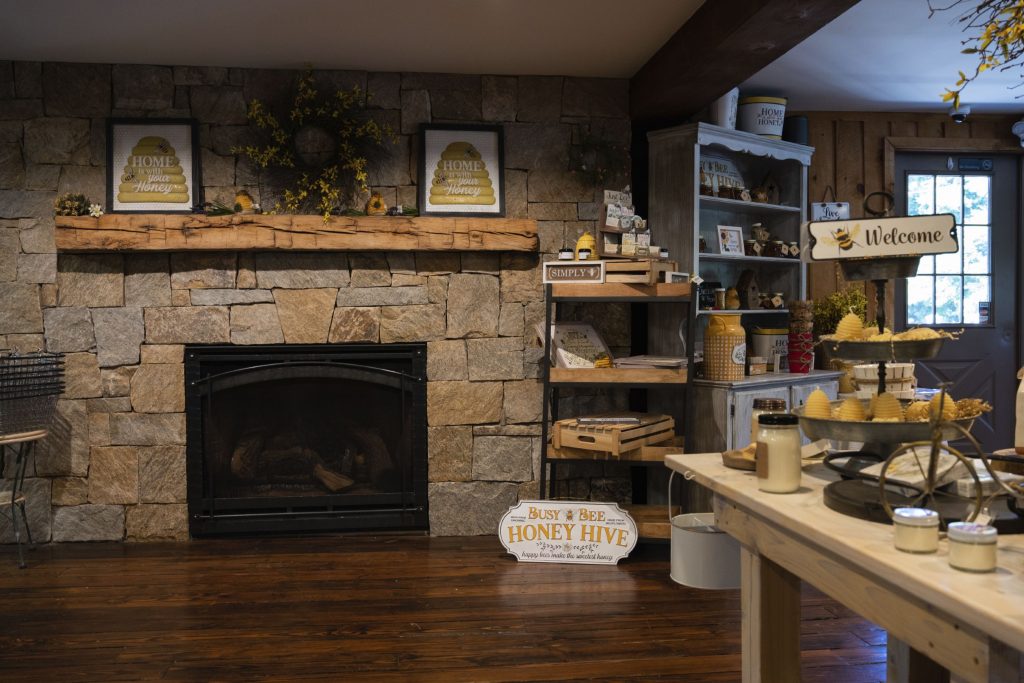
The couple’s decision to tackle each challenge was inspired, in part, by their son Michael, who died on July 30 at the age of 15. Michael had severe cerebral palsy that precluded employment opportunities; his parents had hoped the farm would bring enjoyment and a sense of purpose. “People need a place to work and to be a part of something,” Torello says.
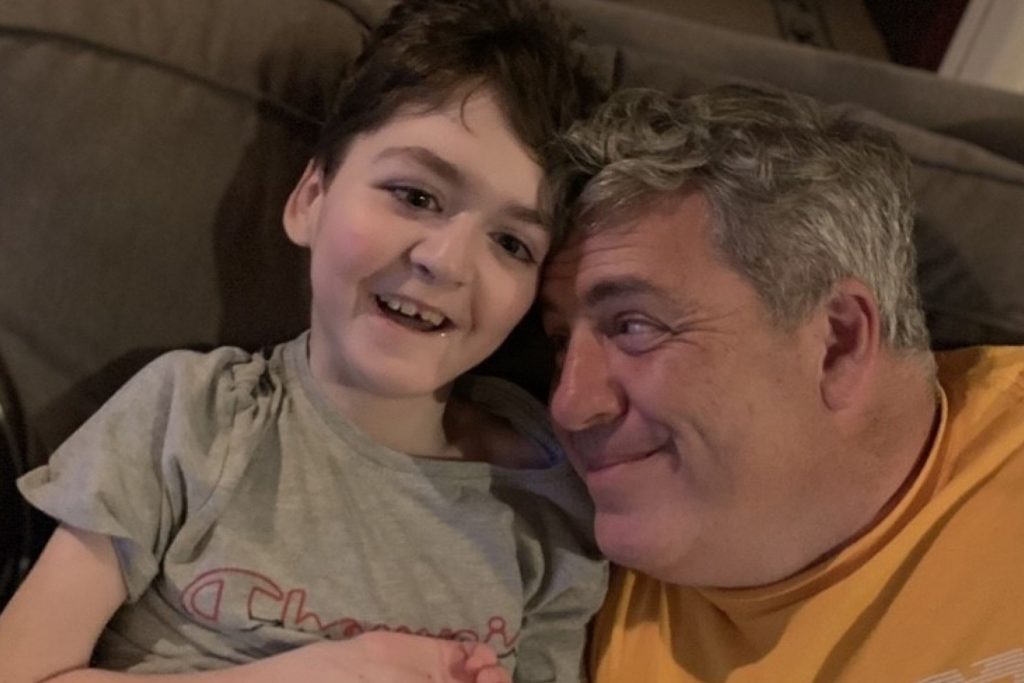
Until his condition worsened in 2019, Michael could often be seen with his parents inside the store, greeting customers or, perhaps, taste testing ice cream. Michael enjoyed the farm.
As a family that strives to promote inclusivity, the Torellos welcome young people with disabilities to volunteer to do jobs around the farm; they only ask that they bring a coach.
Above all, the farm is a family affair. Daughter Julia, 19, assists with baking. Joey, 17, and Matthew, 15, help outdoors when they are not in school. There is plenty of work for all. In step with the renovation, the family adopted a new business model, switching from a fall-only venture to one that operates almost year-round (April-December). To attract visitors during the summer, they added an ice cream parlor and started growing peaches, strawberries, blueberries, blackberries, and raspberries.
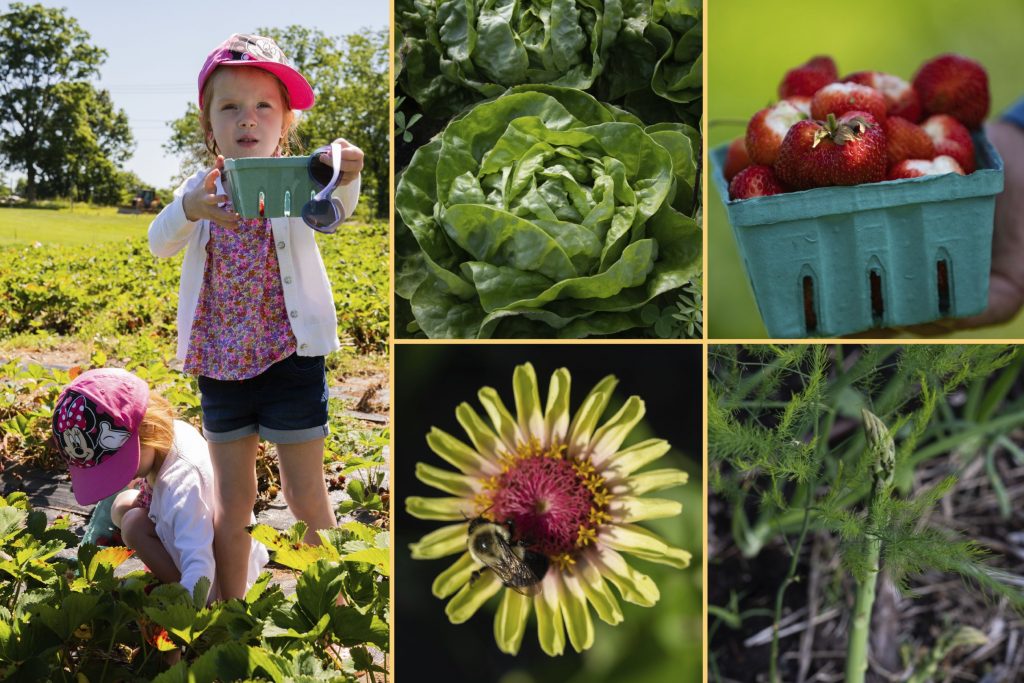
They planted cut-your-own flowers and herbs gardens, and offer walking tours and harvest days. Fall is the farm’s “bread-and- butter,” says Torello. October mainstays include apples, pumpkins, cider doughnuts, pies, and “all sorts of fall goodies.” The holidays bring Christmas trees and photo ops with Santa.
While many farms focus on bulk production, Torello says he emphasizes quality over quantity. The farm specializes in heirloom produce, which it also sells to boutique grocery stores. He strives to farm organically but uses conventional methods if needed. “We’re a farm for families and foodies, so everything we grow is about the flavor,” Torello says.
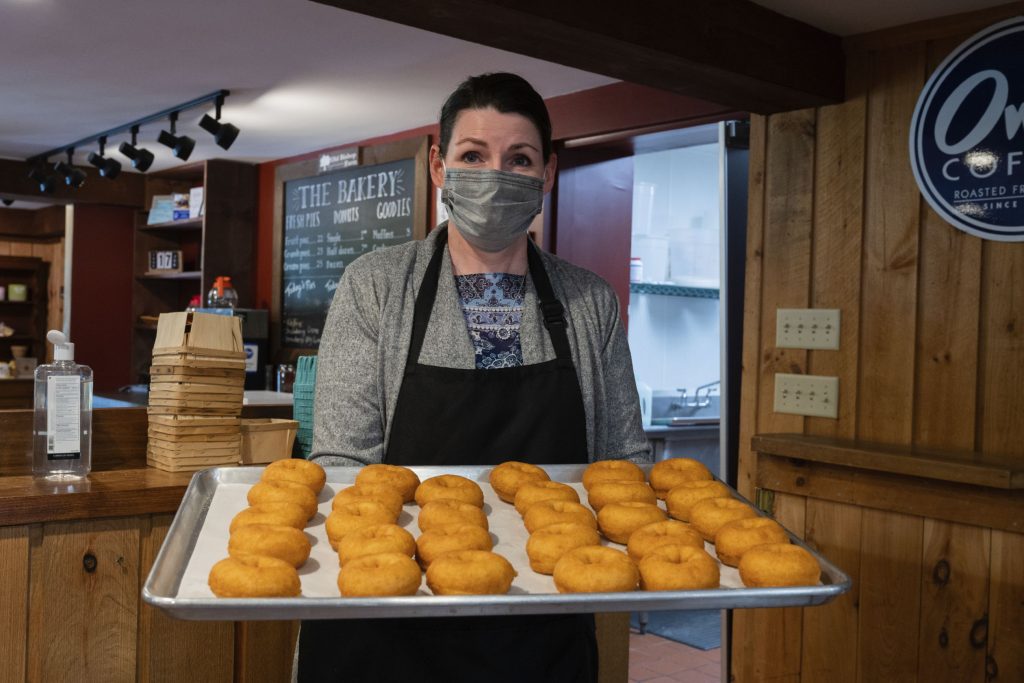
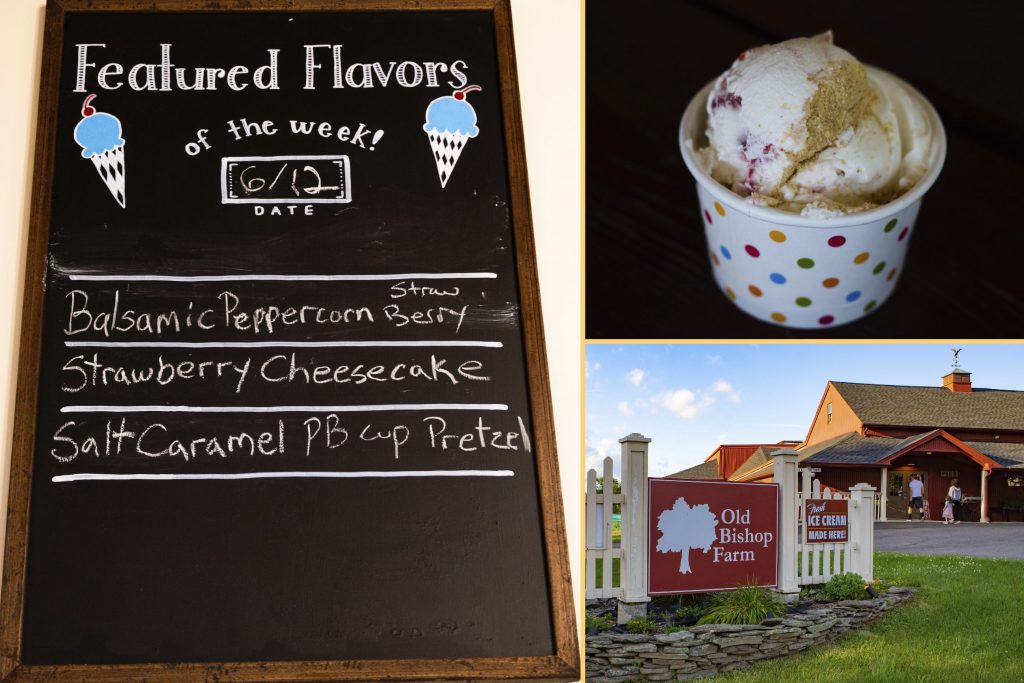
That philosophy carries over to the rest of the business. The doughnuts, pies, muffins, and other sweet treats for sale in the bakery shop are all made from scratch on the premises. While Carolyn does the baking, John oversees the ice cream. He makes it in small batches, producing a super-premium variety that contains less air and boasts a high butterfat content. Flavors range from the traditional, such as strawberry (with real fruit, of course) to the more inventive, like his adults-only Paddy’s Milk and Cookies, a whiskey-infused sweet cream packed with oatmeal chocolate chip cookie crumbles. “We’ve had people drive from 45 minutes away for our ice cream, which is cool,” he says.
That giant “BELIEVE” sign is also a visitor favorite — and Michael is the inspiration behind that, too. “Believe” became a family mantra throughout Michael’s life; the Torellos were often told he would not survive. The word is displayed in decorations all around the family’s home.
The couple initially planned to fill the empty space on the farm building with a banner that read “Ice Cream” or “Fresh Strawberries.” But in 2019, Michael was seriously injured in a fall that resulted in medical complications. He transitioned to palliative care. “I just said to my wife, ‘What if we put ‘Believe’ up there?’” Torello recalls.
He tells customers who ask about the sign to interpret it however they wish. “It could be religious or not religious. It could mean believe in yourself. It really is up to the reader,” he says. But for the family, Michael is the sole inspiration behind the message. Torello comments: “When I first wrote it, at the time, I didn’t really even know why. I just knew I had to do it. But now that he’s gone, I know this was the reason why. It was about him. I believe he is our angel. I believe he is always with us.” ■
Read more stories from the fall 2021 issue.


